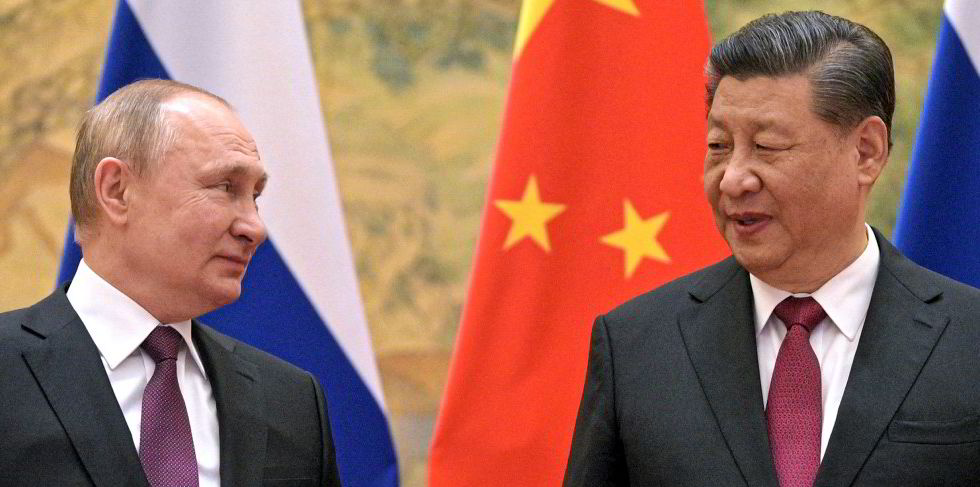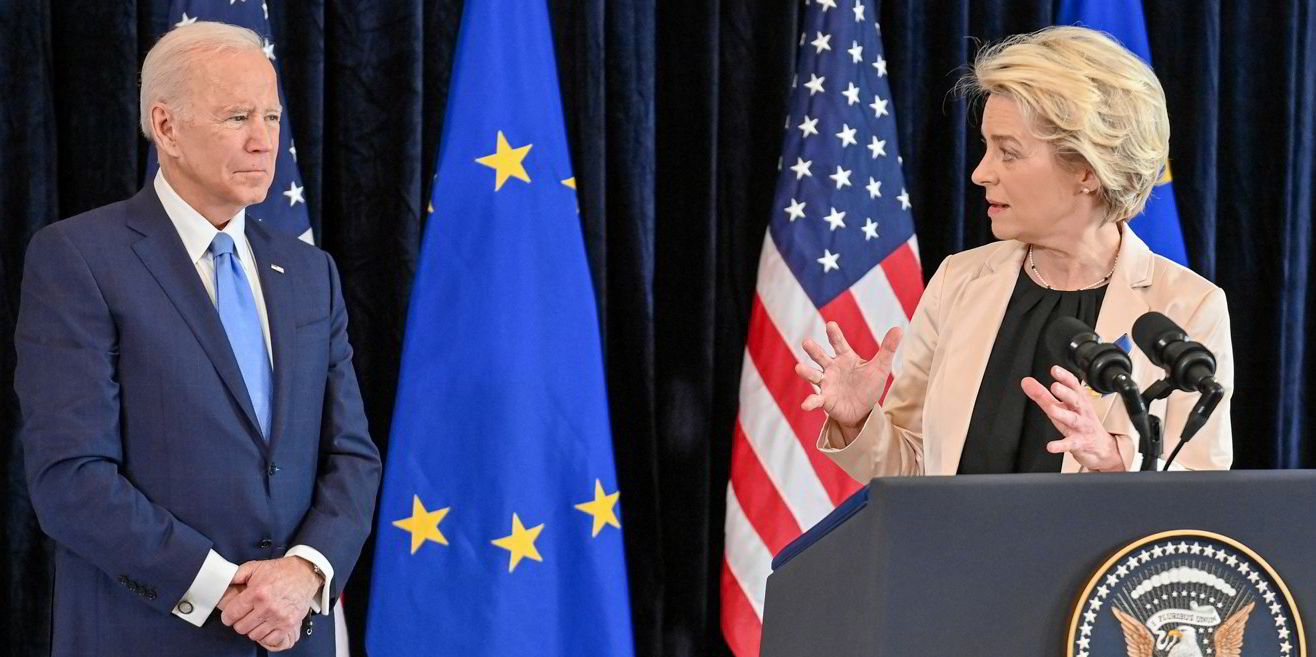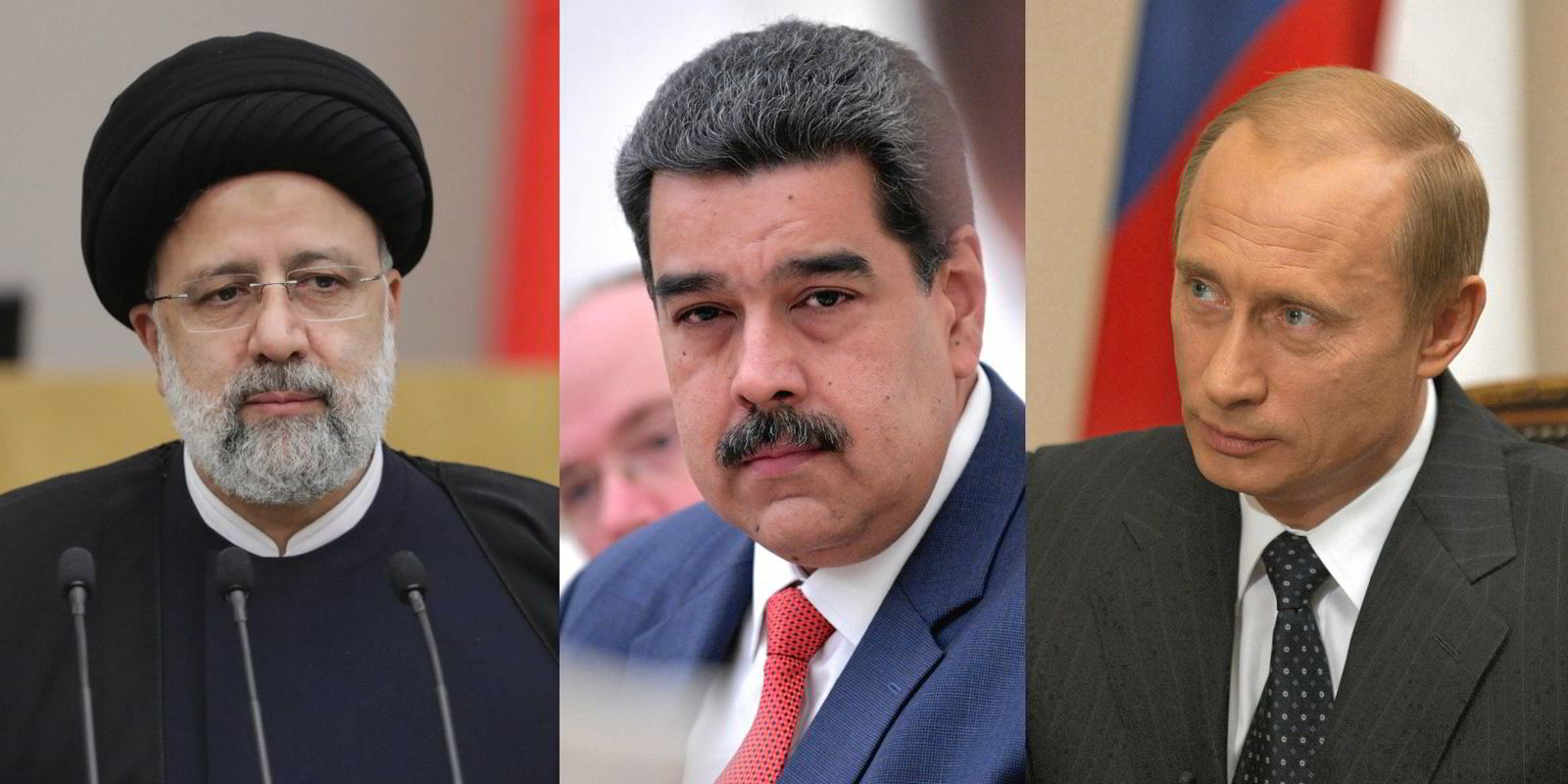Expectations that China would scoop up much of the Russian commodities left orphaned by Western sanctions may have to be revisited.
A combination of Beijing’s zero-Covid policies and high commodity prices may mean China imports less crude oil, natural gas and coal — at least for a while yet.
As recently as late February, analysts were touting the booming trade between China and Russia, which hit a record high of almost $150bn last year. The two countries had aimed to boost bilateral trade to $250bn by 2024.
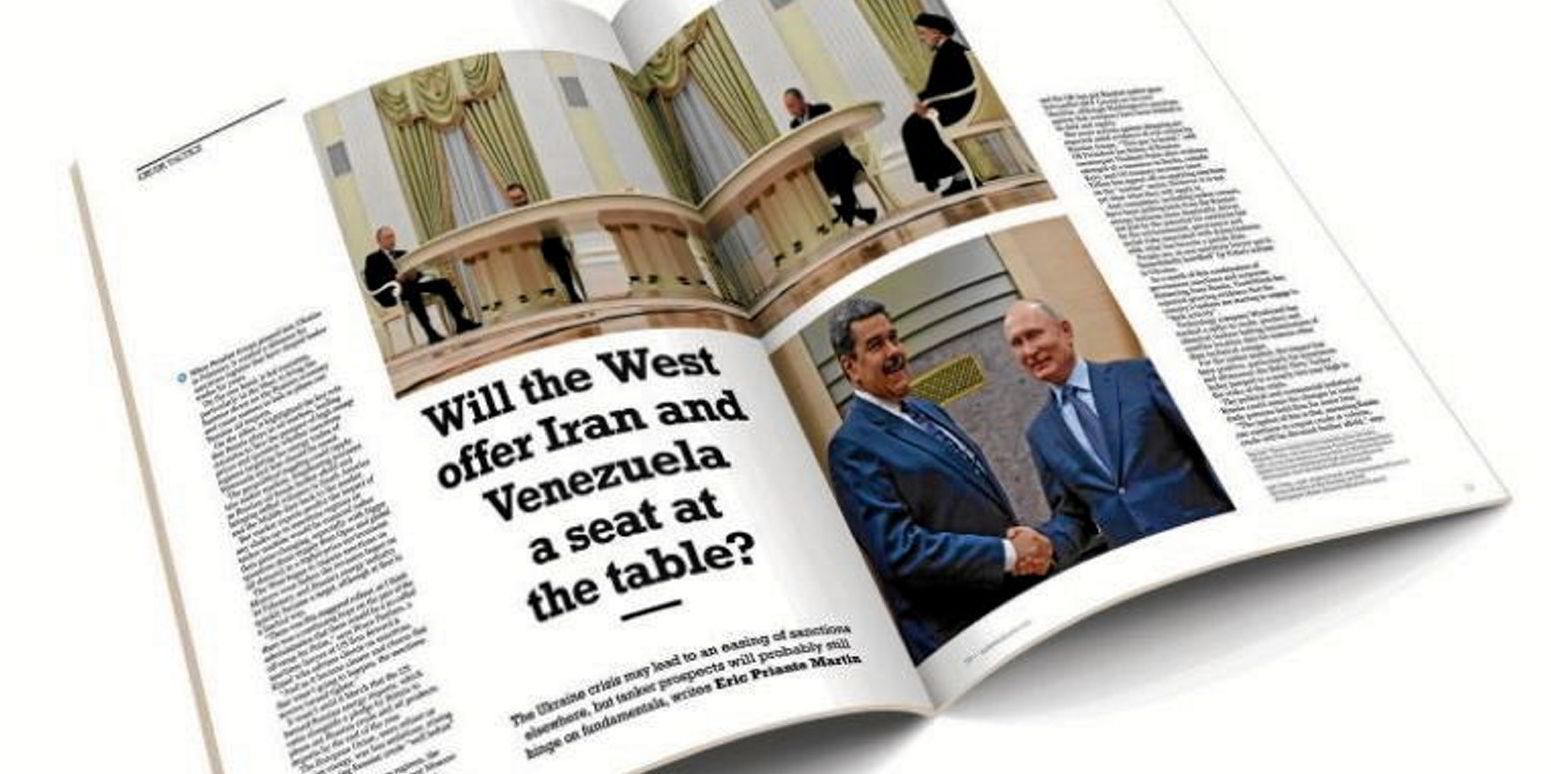
This story is part of a series in TW+ magazine on the wide-ranging impacts of the Russia-Ukraine conflict on shipping. Read the full stories when the magazine is published on 20 May.
But official customs data for March showed that import levels for oil, gas and coal were already weaker than a year ago, a trend that is likely to continue in coming months.
With Shanghai’s lockdown not having started until the end of March, the impact of China’s anti-Covid measures could be even more pronounced in coming months.
According to estimates by analysts at Nomura, at least 23 Chinese cities with a combined population of more than 190m people are enforcing full or partial lockdowns.
“Unlike in 2020, when there was a general belief that Covid-19 would end in the summer, we currently see no end in sight,” they wrote.
Braemar ACM Shipbroking reported that Shanghai banned all private vehicles on roads except for service vehicles, starting from 13 April, as part of Covid-19 prevention measures.
“Domestic flights have also fallen by more than 70% in recent weeks, while international travel remains roughly 80% below pre-pandemic levels,” it added.
“The International Energy Agency [IEA] does not see Chinese air traffic fully recovering by the end of 2022 due to the current zero-Covid policy.”
The IEA has revised China’s 2022 demand growth downwards by 180,000 barrels per day (bpd) compared with its previous forecast in March, to average 15.7m bpd.

Ralph Leszczynski, Banchero Costa’s Singapore-based head of research, tells TW+: “Aside from the fact that China at the moment does not want to give the impression of openly supporting Russia, as they do not want to attract sanctions from the West, the fact is that the Chinese economy is now under enormous pressure from the zero-Covid policy and all the related lockdowns.
“So demand for energy and therefore coal and oil is indeed falling in China right now, which reduced demand for imports in general, from Russia or anywhere else for that matter.”
Russia accounted for 11% (212m tons) of global crude oil exports last year. Of that total, 14% went to China and 54% to the European Union.
Last year, China imported just 7% of its total crude imports from Russia, with 52% coming from the Middle East Gulf.
In the early stages of the Ukraine war, it was expected that cheap Urals crude would be scooped up from the Baltic region onto VLCCs for eventual discharge in China.
However, this has not materialised. Russian Baltic and Black Sea Urals departures to China were actually lower month on month in February and March, according to energy and shipping analytics platform Vortexa.
“China’s domestic demand is under threat from the impact of widespread lockdowns amid rising Covid-19 cases in the country and this has likely helped temper demand for spot purchases that would take more than seven weeks to arrive,” says Vortexa senior market analyst Jay Maroo.
However, Leszczynski believes “big volumes of Russian oil” will eventually end up in China, as it is being marketed at significant discounts compared with Middle Eastern crude.
“However, it will be difficult to fully track the volumes in the trade statistics, as increasingly this is going in shadowy ways not dissimilar to Iranian and Venezuelan crude exports in previous years,” he adds.
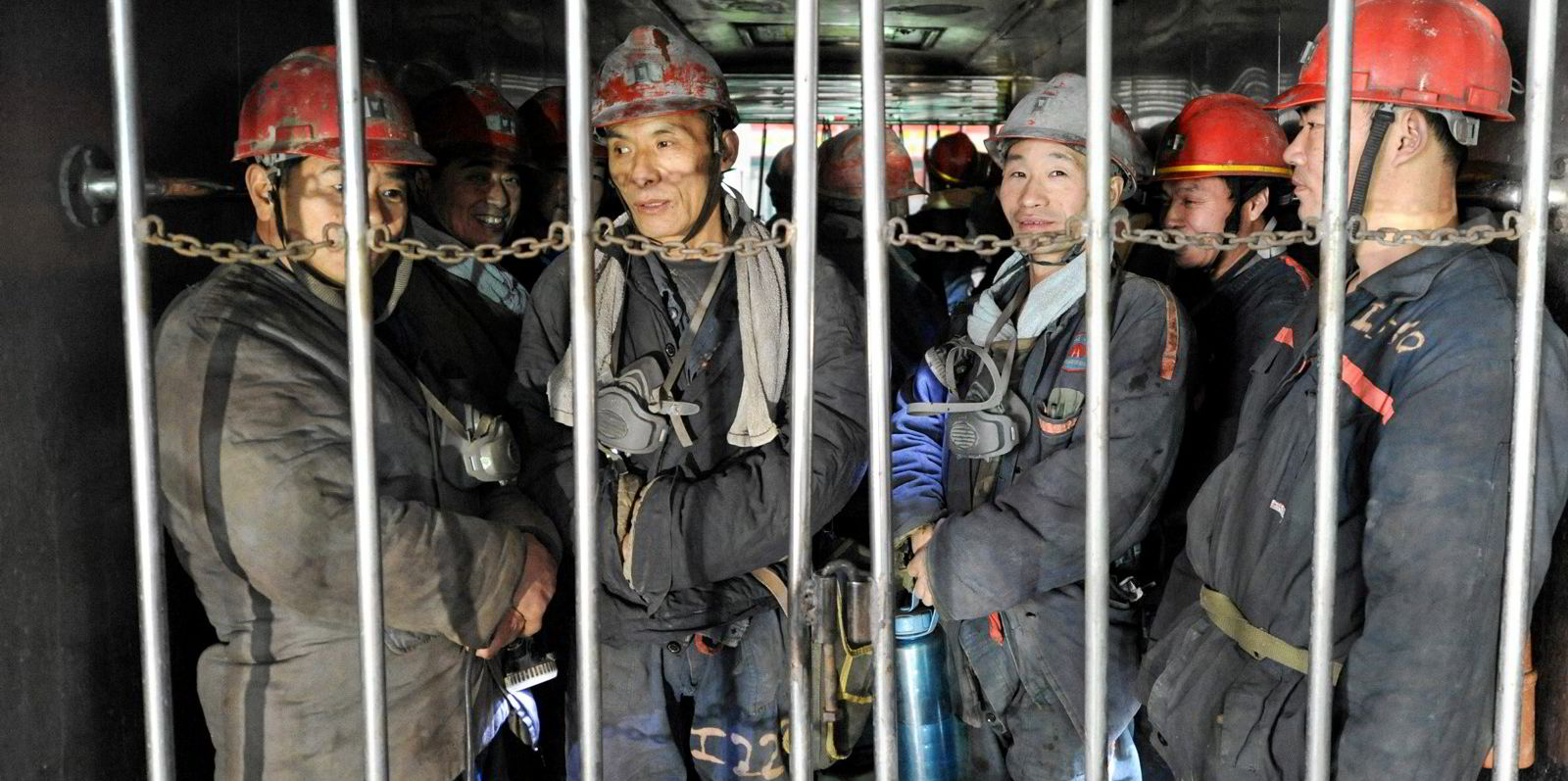
“If official embargoes on Russian exports will be implemented in coming months, then Russian crude exports will become even more shadowy and difficult to track with official trade statistics.”
Fossil fuel imports have also been affected by a boost in China’s coal and gas output, which reached record levels in March, after international prices skyrocketed in the wake of the Russian invasion.
Coal production increased by 15% year on year to 396m tons, according to data from China’s statistics bureau, while natural gas rose 6.3% to 19.7bn cbm and crude oil output rose 3.9% to 17.71m tons, its best level since December 2015.
Russia accounted for 15% (117m tons) of global coal exports in 2021, with 22% of that shipped to China and a similar percentage exported to the EU.
While China received 21% of its coal imports from Russia, 60% of imports originated from Indonesia.
With the EU banning Russian coal from August, Russian producers will probably be looking to the east for alternative buyers.
Redirecting all this coal to the east is impossible. The [railways] do not have the additional capacity to carry it
Natalya Zubarevich
However, they are likely to struggle to direct cargoes to Asian markets due to transport constraints, according to analysts.
“Redirecting all this coal to the east is impossible. The [railways] do not have the additional capacity to carry it,” Natalya Zubarevich, a director at the Independent Institute for Social Policy in Moscow, told the Financial Times.
Capacity is being expanded but will not make a significant difference for some time, she said.
Besides, analysts say, China’s strong domestic production and high seaborne prices are also likely to keep coal imports subdued in coming months.
“China has significant domestic reserves, and coal imports were driven primarily by price arbitrage, as domestic coal production was quite expensive,” Leszczynski says.
“However, when international coal prices reach $300 per tonne, domestic coal production in China suddenly becomes much more economically viable, which is also going to reduce coal imports in the short term.”
Strict Covid lockdowns have also affected China’s agricultural sector, which is facing a serious shortage of fertiliser and seeds.

The Financial Times reported that three provinces — Jilin, Liaoning and Heilongjiang — that account for more than 20% of national grain production had insufficient agricultural inputs after authorities sealed off villages to fight the pandemic.
These problems come as the war in Ukraine has stopped shipments of corn, an important livestock feed, to China. Last year, Ukraine supplied China with 29% of its imported corn and 26% of its imported barley, according to The Economist.
The fighting, which also has disrupted the spring planting season, has created uncertainty about Ukraine’s reliability as a supplier.
The US Department of Agriculture recently disclosed that Chinese buyers had bought more than 1m tons of US corn, their biggest purchase of US grain since May 2021.
Russia accounted for around 20% of global wheat exports in the 2020-2021 season, or 39m tons, with the vast majority shipped to countries such as Egypt and North Africa generally, Turkey, the Middle East and South Asia. Almost none went to China.
Many of those countries are not backing sanctions against Moscow, but even if they want to make those shipments and can find a shipowner willing to lift a cargo, they might have problems paying for it, with so many Russian banks sanctioned and kicked out of the SWIFT banking system.
While cargoes from Russia, the world’s biggest exporter of wheat, are still flowing, questions persist over delivery and payment for future deliveries.
Most Asian LNG importers have paused buying Russian cargoes out of fear of future sanctions or reputational damage, and Chinese firms are emerging as some of the few companies willing to take on that risk.
China’s top LNG importers are cautiously looking to purchase additional Russian shipments that have been shunned by the market, to take advantage of cheap prices, Bloomberg reported.
State-owned companies, including Sinopec and PetroChina, are said to have been discussing with suppliers about buying spot LNG cargoes from Russia at a deep discount, the wire agency added.
China received 387,000 tons of LNG from Russia in March, up 22% from 317,000 tons a year earlier, according to ship-tracking data compiled by Bloomberg.
However, China, which overtook Japan as the world’s biggest LNG importer last year, is actually slashing LNG purchases overall so far this year: imports in the first quarter were down 14% from a year earlier, according to Wood Mackenzie.
The consultancy has also downgraded its gas demand forecast for China until 2026 due to economic pressures and high prices.
The situation is compounded by the fact that the country’s largest gateways for LNG imports, Shanghai and Guangzhou, are at the centre of its worst reported Covid outbreak since the pandemic began.
